-
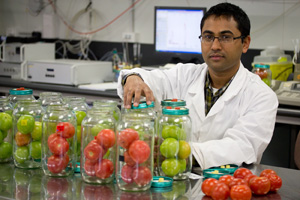 The Centre for Postharvest Refrigeration and Research does research and consultancy to provide cost-effective solutions to industry problems. We work on a wide range of fruit, vegetable, cut flower, seafood and aquaculture products.
The Centre for Postharvest Refrigeration and Research does research and consultancy to provide cost-effective solutions to industry problems. We work on a wide range of fruit, vegetable, cut flower, seafood and aquaculture products. -
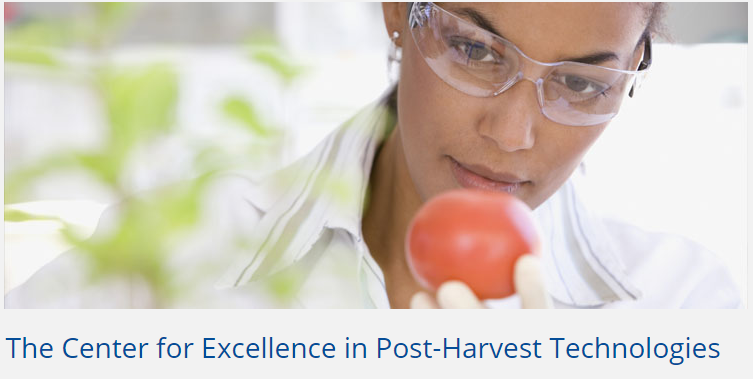 Health science increasingly sees optimal nutrition – particularly nutrition from fruits and vegetables – as the answer to robust health, longevity and disease prevention. Genomics and modern biotechnology make it possible to harness the power of foods to prevent and even treat disease. These advances have made nutrition research one of the most important new frontiers in human health. The Center for Excellence in Post-Harvest Technologies (CEPHT) plays a vital role in this quest. Here, we discover health-enhancing ways to process fruits and vegetables. We add value to agricultural commmodities by finding new ways to make food safer, extend shelf life and preserve health-promoting nutrients. We work with our North Carolina Research Campus partners to expand into diverse areas such as nutrigenomics and metabolomics. And we forge partnerships with industry to create health enriching foods or supplements and spur economic development in North Carolina.
Health science increasingly sees optimal nutrition – particularly nutrition from fruits and vegetables – as the answer to robust health, longevity and disease prevention. Genomics and modern biotechnology make it possible to harness the power of foods to prevent and even treat disease. These advances have made nutrition research one of the most important new frontiers in human health. The Center for Excellence in Post-Harvest Technologies (CEPHT) plays a vital role in this quest. Here, we discover health-enhancing ways to process fruits and vegetables. We add value to agricultural commmodities by finding new ways to make food safer, extend shelf life and preserve health-promoting nutrients. We work with our North Carolina Research Campus partners to expand into diverse areas such as nutrigenomics and metabolomics. And we forge partnerships with industry to create health enriching foods or supplements and spur economic development in North Carolina. -
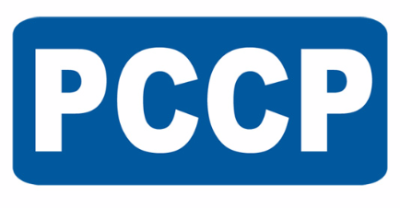 The Philippine Cold Chain Project is an agricultural development model for improved practices in perishable food production, creating better access to post-harvest, marketing and finance facilities while improving productivity in the Caraga, an administrative region of the Philippines on the northeastern potion of the island of Mindanao.
The Philippine Cold Chain Project is an agricultural development model for improved practices in perishable food production, creating better access to post-harvest, marketing and finance facilities while improving productivity in the Caraga, an administrative region of the Philippines on the northeastern potion of the island of Mindanao. -
 The Institute is an international information and technology hub for evaluating, creating and disseminating economically viable technologies, practices and systems that reduce postharvest loss in staple crops such as rice, corn, wheat, and oilseeds.
The Institute is an international information and technology hub for evaluating, creating and disseminating economically viable technologies, practices and systems that reduce postharvest loss in staple crops such as rice, corn, wheat, and oilseeds. -
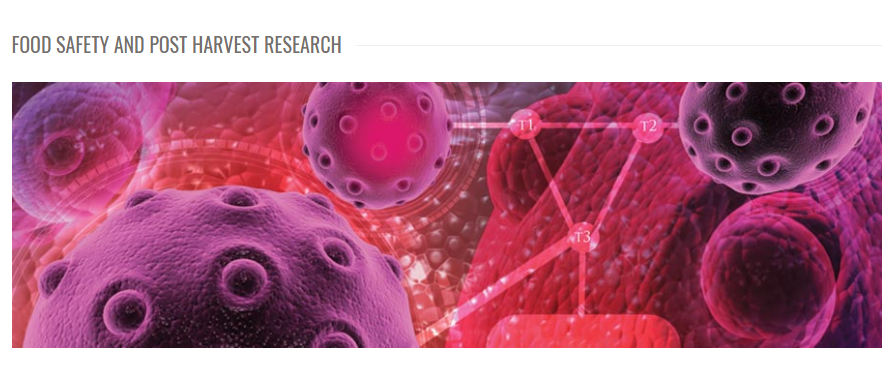 Improving food safety and post-harvest technologies is the focus of the research teams of Leonard Williams, PhD, and Penelope Perkins-Veazie, PhD. Click to the title to access to the center website.
Improving food safety and post-harvest technologies is the focus of the research teams of Leonard Williams, PhD, and Penelope Perkins-Veazie, PhD. Click to the title to access to the center website. -
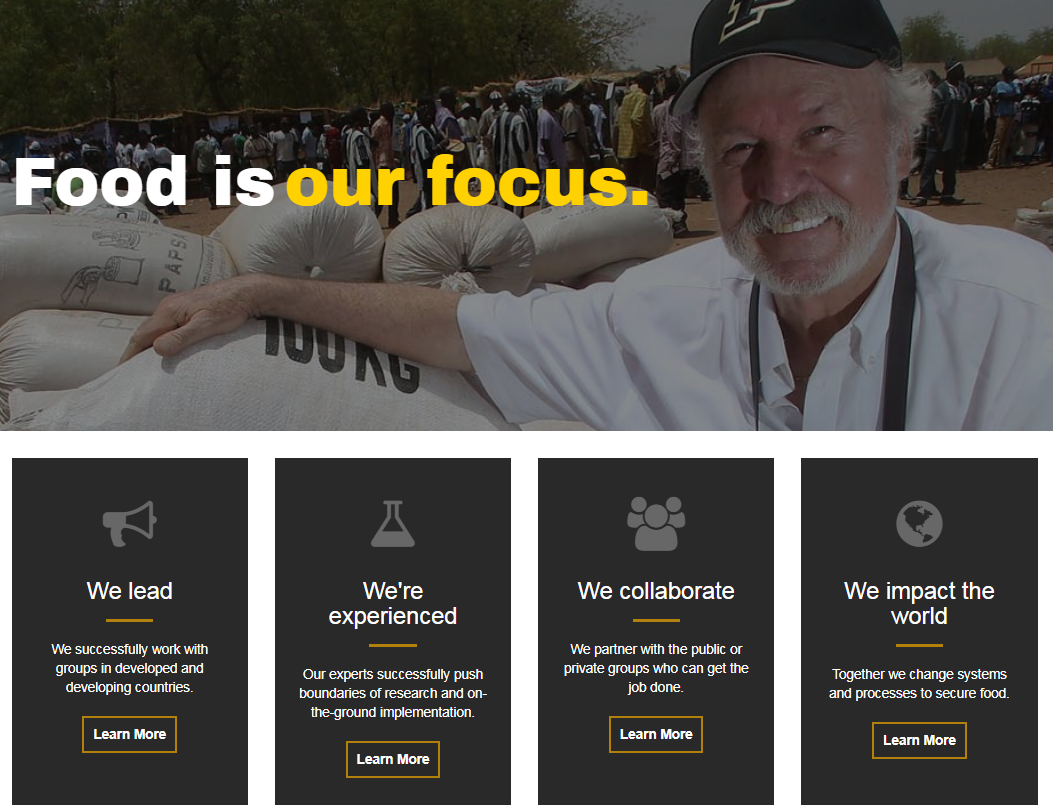 Purdue University is uniquely positioned to lead and to partner on projects to reduce postharvest losses (PHLs), enhance agricultural value chains, and improve nutrition because of its expertise and experience across the various segments of the value chain and relevant intervention areas. Purdue University brings comprehensive expertise and experience to provide solutions for PHL reduction and value chain enhancement applied to a variety of agricultural commodities in both developing and developed countries.
Purdue University is uniquely positioned to lead and to partner on projects to reduce postharvest losses (PHLs), enhance agricultural value chains, and improve nutrition because of its expertise and experience across the various segments of the value chain and relevant intervention areas. Purdue University brings comprehensive expertise and experience to provide solutions for PHL reduction and value chain enhancement applied to a variety of agricultural commodities in both developing and developed countries. -
 Rice Knowledge Bank showcases rice production techniques, agricultural technologies, and best farming practices based on International Rice Research Institute's pool of knowledge from research findings, learning and media resources, and in-country projects.
Rice Knowledge Bank showcases rice production techniques, agricultural technologies, and best farming practices based on International Rice Research Institute's pool of knowledge from research findings, learning and media resources, and in-country projects. -
 The Center was founded in 1978 by Adel Kader with the goal of organizing and coordinating knowledge transfer regarding reduction of postharvest losses and improving the the quality and marketability of fresh horticultural products. The research findings disseminated during this era by Kader and a cadre of colleagues is the cornerstone and foundation for our current year-round supply and global sourcing of quality fresh and minimally-processed produce and cut flowers. Our mission today is to remain a leading source of information on quality, safety and marketability of fresh produce and to sustain the viability of the Center for the next generation of scientists and practitioners. Our immediate goal is to broaden the level of involvement among our basic, applied and extension faculty and use the PTC platform to distill, translate, and disseminate emerging technology advancements to a broader industry and affiliated stakeholder audience.
The Center was founded in 1978 by Adel Kader with the goal of organizing and coordinating knowledge transfer regarding reduction of postharvest losses and improving the the quality and marketability of fresh horticultural products. The research findings disseminated during this era by Kader and a cadre of colleagues is the cornerstone and foundation for our current year-round supply and global sourcing of quality fresh and minimally-processed produce and cut flowers. Our mission today is to remain a leading source of information on quality, safety and marketability of fresh produce and to sustain the viability of the Center for the next generation of scientists and practitioners. Our immediate goal is to broaden the level of involvement among our basic, applied and extension faculty and use the PTC platform to distill, translate, and disseminate emerging technology advancements to a broader industry and affiliated stakeholder audience. -
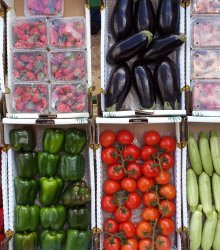 The main objective of the Institute of Postharvest and Food Sciences is research and development for preservation of shelf-life while keeping the quality, safety and nutritional value of various types of fresh or dry agricultural produce intended for export as well as for local markets. These include foods intended for human consumption, animal feed derived from plants and animals and ornamental use. The institute aims at advancing and supporting Israeli agriculture and contributing to the wellbeing of the farmers and the general public in the country. The existence of diverse research disciplines and research groups under the same roof enables fruitful interdisciplinary cooperative research between the various research teams aimed at achieving common objectives.
The main objective of the Institute of Postharvest and Food Sciences is research and development for preservation of shelf-life while keeping the quality, safety and nutritional value of various types of fresh or dry agricultural produce intended for export as well as for local markets. These include foods intended for human consumption, animal feed derived from plants and animals and ornamental use. The institute aims at advancing and supporting Israeli agriculture and contributing to the wellbeing of the farmers and the general public in the country. The existence of diverse research disciplines and research groups under the same roof enables fruitful interdisciplinary cooperative research between the various research teams aimed at achieving common objectives. -
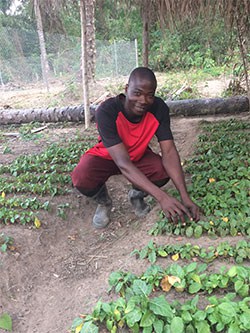 Improving postharvest management improves the quality and safety of produce available to consumers and farmer incomes. Vegetables are nutritious food crops and valuable commodities, and postharvest management has a big impact on their quality and the income received for them. Harvested vegetables are still living; they respire and age and can spoil easily without appropriate postharvest treatments. Postharvest losses of 9-25% of production are common. These costs are borne by farmers as reduced farm gate prices and by consumers as increased purchase prices.
Improving postharvest management improves the quality and safety of produce available to consumers and farmer incomes. Vegetables are nutritious food crops and valuable commodities, and postharvest management has a big impact on their quality and the income received for them. Harvested vegetables are still living; they respire and age and can spoil easily without appropriate postharvest treatments. Postharvest losses of 9-25% of production are common. These costs are borne by farmers as reduced farm gate prices and by consumers as increased purchase prices. -
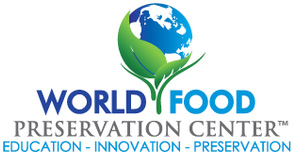 Major research universities and institutes on six continents dedicated to substantially reducing postharvest losses of food in developing countries and diminishing world hunger.
Major research universities and institutes on six continents dedicated to substantially reducing postharvest losses of food in developing countries and diminishing world hunger. -
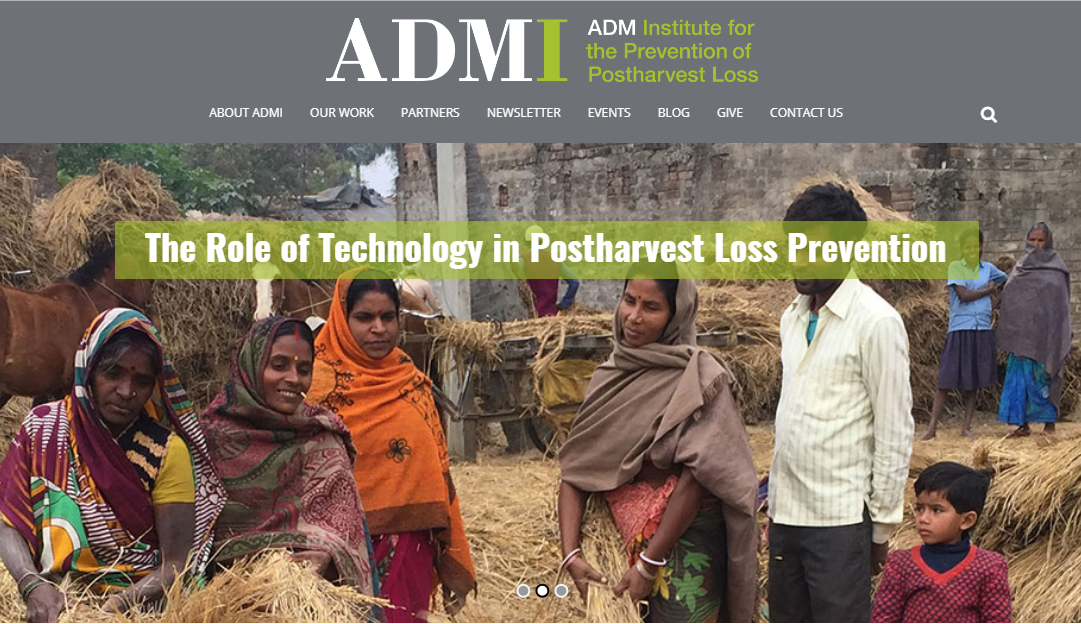 In January 2011, the Archer Daniels Midland Company (ADM) provided a $10 million gift to the University of Illinois to establish the ADM Institute for the Prevention of Postharvest Loss. The institute was created in response to the rising amounts of staple crops lost each year in food chains around the world. The institute is an international information and technology hub for evaluating, creating and disseminating economically viable technologies, practices, and systems that reduce postharvest losses of commodities, including rice, wheat, maize, and oilseeds.
In January 2011, the Archer Daniels Midland Company (ADM) provided a $10 million gift to the University of Illinois to establish the ADM Institute for the Prevention of Postharvest Loss. The institute was created in response to the rising amounts of staple crops lost each year in food chains around the world. The institute is an international information and technology hub for evaluating, creating and disseminating economically viable technologies, practices, and systems that reduce postharvest losses of commodities, including rice, wheat, maize, and oilseeds. -
 World Resources Institute (WRI) is a global research organization that spans more than 60 countries, with international offices in Brazil, China, India, Indonesia, Mexico and the United States, regional offices in Ethiopia (for Africa) and the Netherlands (for Europe), and program offices in the Democratic Republic of Congo, Turkey and the United Kingdom. Our more than 700 experts and staff turn big ideas into action at the nexus of environment, economic opportunity and human well-being.
World Resources Institute (WRI) is a global research organization that spans more than 60 countries, with international offices in Brazil, China, India, Indonesia, Mexico and the United States, regional offices in Ethiopia (for Africa) and the Netherlands (for Europe), and program offices in the Democratic Republic of Congo, Turkey and the United Kingdom. Our more than 700 experts and staff turn big ideas into action at the nexus of environment, economic opportunity and human well-being. -
 Through the postharvest research and extension programs of 11 Extension Specialists, UC Davis Postharvest Technology Center strive to provide relevant information to California growers, shippers, marketers, carriers, distributors, retailers, processors, and consumers of fresh horticultural crops.
Through the postharvest research and extension programs of 11 Extension Specialists, UC Davis Postharvest Technology Center strive to provide relevant information to California growers, shippers, marketers, carriers, distributors, retailers, processors, and consumers of fresh horticultural crops. -
 Welcome to the Postharvest Information Network, a resource for postharvest information on apples, pears, cherries, stone fruit, and postharvest practices. Browse our database here, or click on a fruit, then select a subject area or fruit variety to see the list of related articles.
Welcome to the Postharvest Information Network, a resource for postharvest information on apples, pears, cherries, stone fruit, and postharvest practices. Browse our database here, or click on a fruit, then select a subject area or fruit variety to see the list of related articles. -
 AVRDC – The World Vegetable Center, an international nonprofit research and development institute, is committed to alleviating poverty and malnutrition in the developing world through the increased production and consumption of nutritious and health-promoting vegetables.
AVRDC – The World Vegetable Center, an international nonprofit research and development institute, is committed to alleviating poverty and malnutrition in the developing world through the increased production and consumption of nutritious and health-promoting vegetables. -
 The mission of The Postharvest Education Foundation is to provide innovative programs that motivate and empower people to reduce food waste.
The mission of The Postharvest Education Foundation is to provide innovative programs that motivate and empower people to reduce food waste. -
 In the US, we throw away roughly 40 percent of our food supply every year, squandering scarce natural resources and damaging the environment in the process. Food waste occurs across the supply chain: on farms, in restaurants, at supermarkets and in the home - but solutions exist at all levels. Learn more about the issue and what you can do.
In the US, we throw away roughly 40 percent of our food supply every year, squandering scarce natural resources and damaging the environment in the process. Food waste occurs across the supply chain: on farms, in restaurants, at supermarkets and in the home - but solutions exist at all levels. Learn more about the issue and what you can do. -
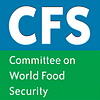 The High Level Panel of Experts (HLPE) on food security and nutrition has been created as part of the reform of the international governance of food security to advise the Committee on World Food Security (CFS) which is the foremost intergovernmental and international platform dealing with food security and nutrition.
The High Level Panel of Experts (HLPE) on food security and nutrition has been created as part of the reform of the international governance of food security to advise the Committee on World Food Security (CFS) which is the foremost intergovernmental and international platform dealing with food security and nutrition. -
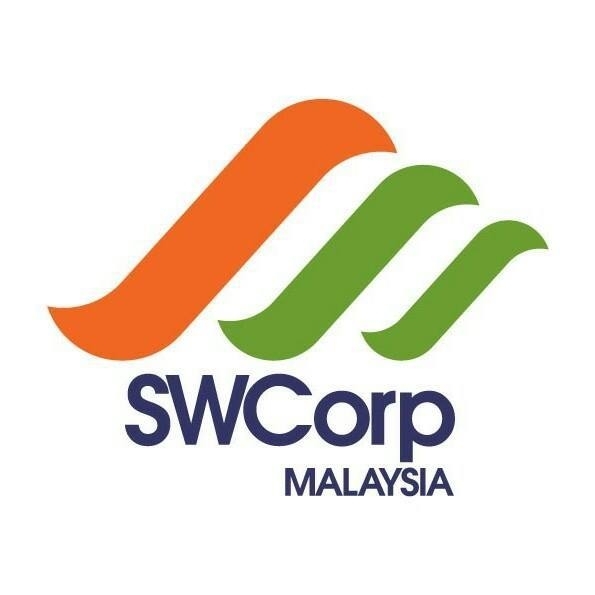 The Solid Waste Management and Public Cleansing Corporation (SWCorp Malaysia) was established to complement and ensure the successful implementation of the National Solid Waste Management Policy. In general, the policy aims to provide a comprehensive, integrated, cost-effective, and sustainable solid waste management system in line with society's demand for environmental conservation and public well-being. It has the power to administer and enforce solid waste and public cleansing management laws and matters related thereto. The role of the Corporation is to ensure that solid waste and public cleansing management services will be more efficient and integrated, as well as meeting consumers expectations.
The Solid Waste Management and Public Cleansing Corporation (SWCorp Malaysia) was established to complement and ensure the successful implementation of the National Solid Waste Management Policy. In general, the policy aims to provide a comprehensive, integrated, cost-effective, and sustainable solid waste management system in line with society's demand for environmental conservation and public well-being. It has the power to administer and enforce solid waste and public cleansing management laws and matters related thereto. The role of the Corporation is to ensure that solid waste and public cleansing management services will be more efficient and integrated, as well as meeting consumers expectations. -
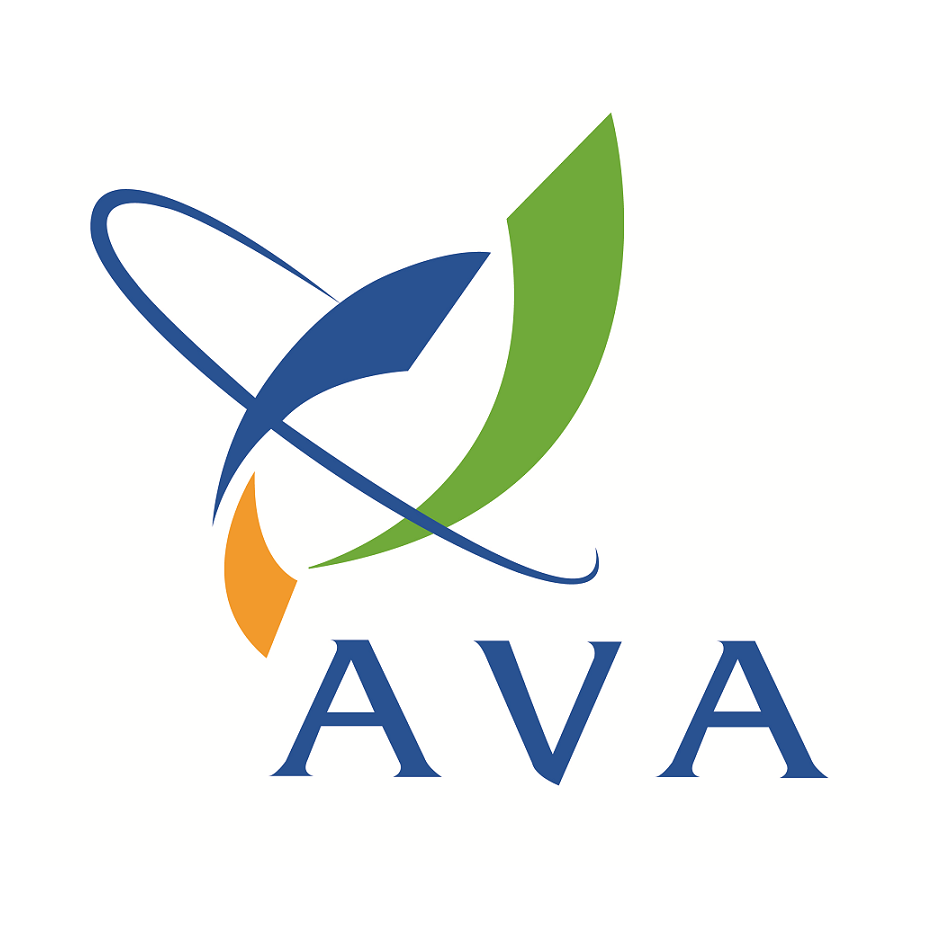 The Missions of The Agri-Food & Veterinary Authority are: 1.Ensure a resilient supply of safe food; 2.Ensure the health & safeguard the welfare of animals; 3.Safeguard the health of plants; 4.Facilitate agri-trade; and 5.Nurture and inspire staff to be the best we can be!
The Missions of The Agri-Food & Veterinary Authority are: 1.Ensure a resilient supply of safe food; 2.Ensure the health & safeguard the welfare of animals; 3.Safeguard the health of plants; 4.Facilitate agri-trade; and 5.Nurture and inspire staff to be the best we can be! -
 The Philippine Center for Postharvest Development and Mechanization (PHilMech) is an attached agency of the Department of Agriculture (DA). The mission of PHilMech is to empower the agriculture and fishery sector by increasing resource-use efficiency and productivity, reducing losses and adding value to the produce through research, development and extension.
The Philippine Center for Postharvest Development and Mechanization (PHilMech) is an attached agency of the Department of Agriculture (DA). The mission of PHilMech is to empower the agriculture and fishery sector by increasing resource-use efficiency and productivity, reducing losses and adding value to the produce through research, development and extension. -
 We want to become the global technology provider for the agricultural industry, in particular we want to focus on the seed industry. We want to achieve this goal through three different channels : 1.Through development of proven technologies or available knowledge into needed quality systems for the agricultural industry. 2.Through a technical development, support and engineering for in-house operations, including custom made and standard available technologies. 3.Trough training sessions and consultancy, making this technical knowledge available to the agricultural industry, worldwide.
We want to become the global technology provider for the agricultural industry, in particular we want to focus on the seed industry. We want to achieve this goal through three different channels : 1.Through development of proven technologies or available knowledge into needed quality systems for the agricultural industry. 2.Through a technical development, support and engineering for in-house operations, including custom made and standard available technologies. 3.Trough training sessions and consultancy, making this technical knowledge available to the agricultural industry, worldwide. -
 KiwiHarvest reduces the negative impacts of food waste on our environment by redistributing excess food; helping to create lasting positive social change by nourishing those in need.
KiwiHarvest reduces the negative impacts of food waste on our environment by redistributing excess food; helping to create lasting positive social change by nourishing those in need. -
 The Chinese Academy of Agricultural Sciences (CAAS) is a national, integrative agricultural scientific research organization with responsibility for carrying out both basic and applied research, as well as research into new technologies impacting agriculture. CAAS promotes sustainable agriculture within and outside China, extending its reach through technology exchange and cooperative research agreements with agricultural research institutions/universities domestically and internationally. and global non-governmental organizations.
The Chinese Academy of Agricultural Sciences (CAAS) is a national, integrative agricultural scientific research organization with responsibility for carrying out both basic and applied research, as well as research into new technologies impacting agriculture. CAAS promotes sustainable agriculture within and outside China, extending its reach through technology exchange and cooperative research agreements with agricultural research institutions/universities domestically and internationally. and global non-governmental organizations. -
 Key industries that the Park aims to develop include plant seedling,animal breeding and specific pathogen-free animals, fish breeding and aquaculture products, functional foods, modern Chinese medicine and medicinal cosmetics, biopesticides, biofertilizers, animal vaccines, animal and plant test reagents, animal and plant molecular farms, and agricultural and biotech services. Up to now, the Park has approved the residency applications of 98 agricultural and biotech enterprises. Park residents are gradually developing a supplementary and upstream/downstream supply relationship among themselves, and furthermore, forming an extensive supply chain with enterprises outside the Park, hence creating powerful cluster synergies.
Key industries that the Park aims to develop include plant seedling,animal breeding and specific pathogen-free animals, fish breeding and aquaculture products, functional foods, modern Chinese medicine and medicinal cosmetics, biopesticides, biofertilizers, animal vaccines, animal and plant test reagents, animal and plant molecular farms, and agricultural and biotech services. Up to now, the Park has approved the residency applications of 98 agricultural and biotech enterprises. Park residents are gradually developing a supplementary and upstream/downstream supply relationship among themselves, and furthermore, forming an extensive supply chain with enterprises outside the Park, hence creating powerful cluster synergies. -
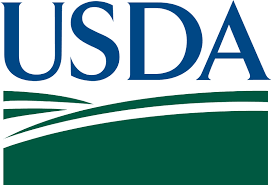 We provide leadership on food, agriculture, natural resources, rural development, nutrition, and related issues based on public policy, the best available science, and effective management. We have a vision to provide economic opportunity through innovation, helping rural America to thrive; to promote agriculture production that better nourishes Americans while also helping feed others throughout the world; and to preserve our Nation's natural resources through conservation, restored forests, improved watersheds, and healthy private working lands. Our strategic goals serve as a roadmap for the Department to help ensure we achieve our mission and implement our vision.
We provide leadership on food, agriculture, natural resources, rural development, nutrition, and related issues based on public policy, the best available science, and effective management. We have a vision to provide economic opportunity through innovation, helping rural America to thrive; to promote agriculture production that better nourishes Americans while also helping feed others throughout the world; and to preserve our Nation's natural resources through conservation, restored forests, improved watersheds, and healthy private working lands. Our strategic goals serve as a roadmap for the Department to help ensure we achieve our mission and implement our vision. -
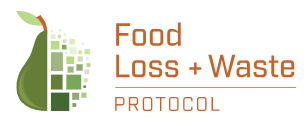 The Food Loss & Waste Protocol is a multi-stakeholder partnership, which has developed the global Food Loss and Waste Accounting and Reporting Standard – also known simply as the FLW Standard. Launched in 2013, the Food Loss & Waste Protocol’s mission is to ensure wide adoption of the FLW Standard so companies, governments, cities and others are better informed about food loss and waste and motivated to curb this inefficiency. A Steering Committee of seven expert institutions provides technical input, written content, strategic direction, and quality control.
The Food Loss & Waste Protocol is a multi-stakeholder partnership, which has developed the global Food Loss and Waste Accounting and Reporting Standard – also known simply as the FLW Standard. Launched in 2013, the Food Loss & Waste Protocol’s mission is to ensure wide adoption of the FLW Standard so companies, governments, cities and others are better informed about food loss and waste and motivated to curb this inefficiency. A Steering Committee of seven expert institutions provides technical input, written content, strategic direction, and quality control. -
 We are an international nonprofit that works towards a hunger-free future in more than 30 countries by creating, sustaining, and strengthening food banks. We believe that food banks are an integral and viable solution in empowering the world to defeat hunger and change lives. A food bank operating alone can alleviate hunger in a small, yet mighty way. But a food bank connected to GFN can make an immense impact by scaling faster and operating more efficiently. GFN offers expertise, resources, and connections that give food banks what they need to become leaders in their community for a hunger-free future.
We are an international nonprofit that works towards a hunger-free future in more than 30 countries by creating, sustaining, and strengthening food banks. We believe that food banks are an integral and viable solution in empowering the world to defeat hunger and change lives. A food bank operating alone can alleviate hunger in a small, yet mighty way. But a food bank connected to GFN can make an immense impact by scaling faster and operating more efficiently. GFN offers expertise, resources, and connections that give food banks what they need to become leaders in their community for a hunger-free future. -
This 2014 study by the OECD entitled “Food Waste Along the Food Chain,” OECD researchers compiled and analyzed publicly available data and policy information to develop a number of broad descriptive findings. Individual economy-level data for food waste and loss at the household level was found to be robust while little is recorded for the food manufacturing and food service sectors. Policy and legislative analysis provided that most economies have legal frameworks to manage waste already specifically adapted to food. Research concluded that based on data collected, when policy emphasis shifts from waste management itself to improving overall production efficiency, the gains are far greater in terms of edible food production that is saved. The key concern highlighted was a lack of standardization among definitions for food loss and waste in order to develop global standards within increasingly globalized food production.
-
The OECD’s 2015 report on the “Market and Trade Impacts of Food Loss and Waste Reduction” summarizes forward looking analysis of food loss reduction impacts. The report examines projections by the Aglink-Cosimo model for the period 2014 through to 2023, applying FAO estimates of producer loss and consumer waste. The core cost assumption is a 20% reduction in wastage at no cost over the projection period. The financial impact is suggested to be upwards of USD 2.5 trillion dollars for the projection period primarily due to decreased consumer spending as demand falls with decreased waste and therefore consumption need. Additionally, reduced production losses will further reduce prices due to increased supply.
-
The OECD food waste dataset is a compilation of food loss and food waste data for 32 economies spanning the years 1993 to 2013. Data availability varies by country by year across the entire compilation period. Several data sources are utilized: data from international organisations, government and national statistic institutes, OECD delegations, academic studies, and private sector and governmental analytical reports. When available, detailed information on sources is provided in the "variable def. and sources" section (ex. specific references to an accessible academic article or a government website).
-
The case of the United Kingdom’s Waste and Resources Action Program (WRAP) is a main focus point of this 2015 OECD report on two international case studies for food waste policies. The UK’s WRAP effort is of high relevance to consumer, manufacture, and retail food waste reduction. The key observation is that while the potential to further reduce waste exists, the marginal improvements will become increasingly challenging. The WRAP program reduced household food waste by 15% over five years, 2007 through 2012 despite the number of households increasing by 4% in the same period. Similarly, manufacture and retail waste fell by 10% from 2009 to 2012. The WRAP effort utilizes an evidence-based strategy to build clear and compelling recommendations for public communication to consumers, industry, and other stakeholders. Recommendations are backed up with monitoring and data sharing of collective targets which allows for recognition of achievements and sharing of best practices. The public nature of target setting and achievement is thought to be effective at spurring waste reduction.
-
This 2014 report from the USDA utilizes its Economic Research Service (ERS) estimates of national food loss in the United States. Estimates were based on aggregation of over 200 individual foods with retail prices determining the economic loss of wastage. Associated calories are also presented based on figures determined by the ERS. A unique conclusion from the study highlights that food loss is economically efficient in certain cases as there exists a practical limit to realistic prevention, reduction, or recovery of food for human consumption due to time, space, taste, and technical constraints.
-
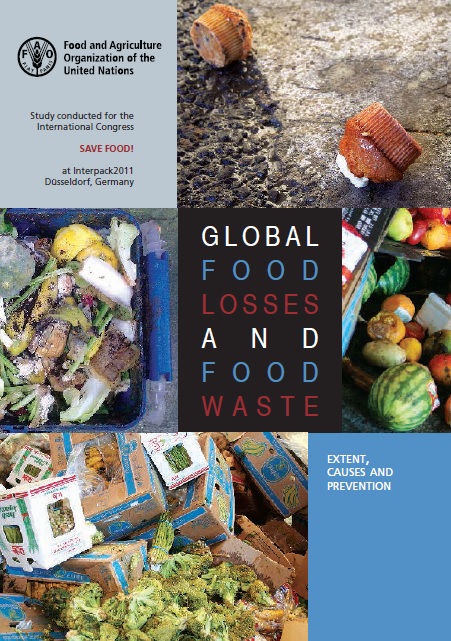 FAO offers this Definition as a global reference for any stakeholder dealing with FLW, and to use it within the context of their operations. It is not cast in stone, and after one year of feedback we will evaluate the functionality of the definition and adjust it if necessary.
FAO offers this Definition as a global reference for any stakeholder dealing with FLW, and to use it within the context of their operations. It is not cast in stone, and after one year of feedback we will evaluate the functionality of the definition and adjust it if necessary. -
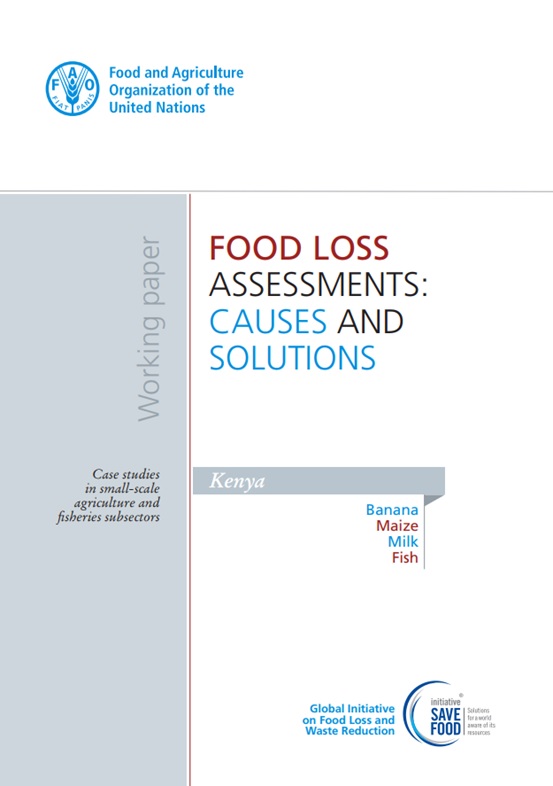 Field Case Studies - Kenya food loss assessments: causes and solutions for banana, maize, milk, fishThe objective of this study is the identification and quantification of the main causes of food losses in the selected food supply chains, and the analysis of the measures to reduce food losses on their technical and economic feasibility, social acceptability and environmental impact, leading to concrete proposals to implement a food loss reduction programme.
Field Case Studies - Kenya food loss assessments: causes and solutions for banana, maize, milk, fishThe objective of this study is the identification and quantification of the main causes of food losses in the selected food supply chains, and the analysis of the measures to reduce food losses on their technical and economic feasibility, social acceptability and environmental impact, leading to concrete proposals to implement a food loss reduction programme. -
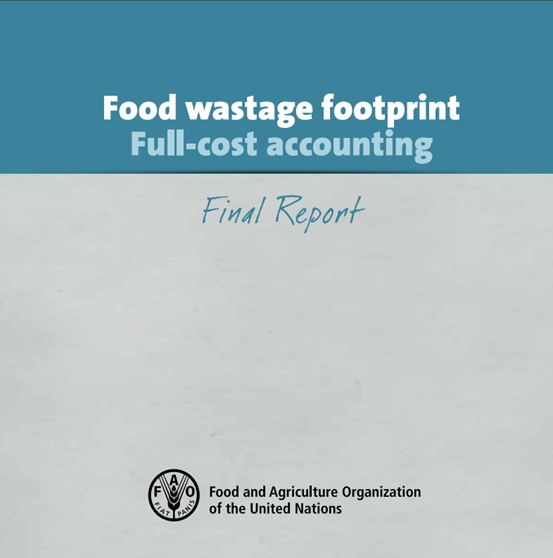 This document introduces a methodology that enables the full-cost accounting (FCA) of the food wastage footprint. Based on the best knowledge and techniques available, FCA measures and values in monetary terms the externality costs associated with the environmental impacts of food wastage.
This document introduces a methodology that enables the full-cost accounting (FCA) of the food wastage footprint. Based on the best knowledge and techniques available, FCA measures and values in monetary terms the externality costs associated with the environmental impacts of food wastage. -
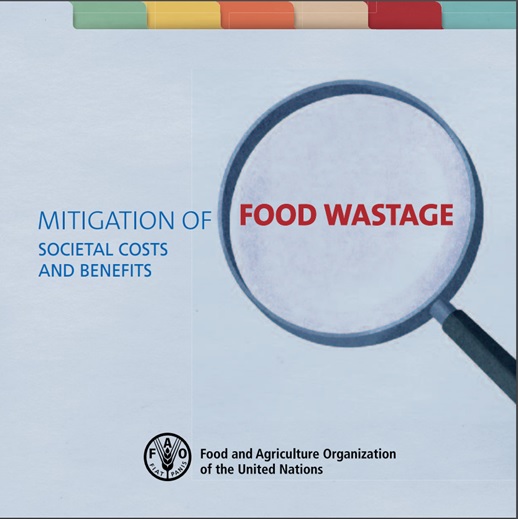 This paper presents a portfolio of potential food wastage mitigation measures, illustrating the gross and net economic, environmental and societal benefits of each. The performance of measures aiming at avoiding food wastage tends to be higher than for reusing, recycling of food products and certainly higher than landfilling.
This paper presents a portfolio of potential food wastage mitigation measures, illustrating the gross and net economic, environmental and societal benefits of each. The performance of measures aiming at avoiding food wastage tends to be higher than for reusing, recycling of food products and certainly higher than landfilling. -
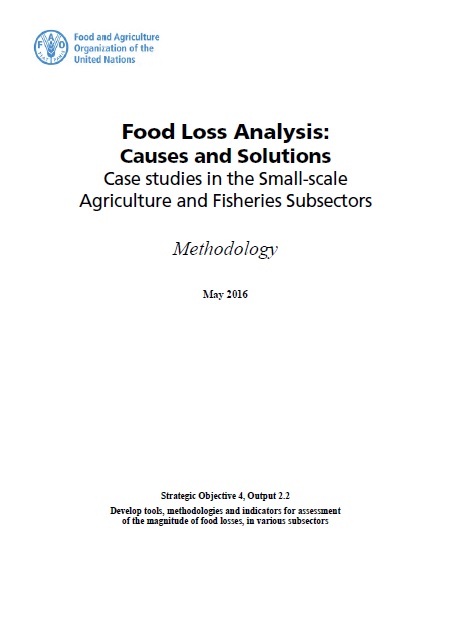 Food losses and their prevention have an impact on the environment and climate change, food security and livelihoods for poor people, and economic development. The exact causes of food losses vary throughout the world and are very much dependent on the specific conditions and local situation in a given country, region or production area.
Food losses and their prevention have an impact on the environment and climate change, food security and livelihoods for poor people, and economic development. The exact causes of food losses vary throughout the world and are very much dependent on the specific conditions and local situation in a given country, region or production area. -
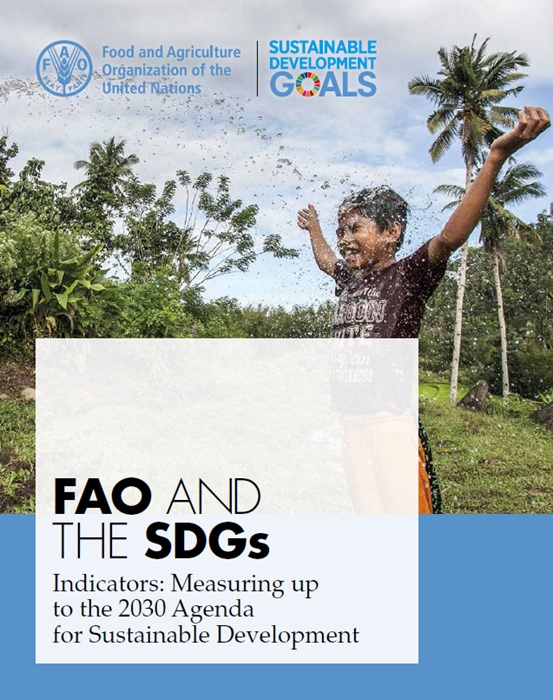 This publication presents FAO’s work in developing and strengthening indicators that measure food, agriculture and the sustainable use of natural resources, shining a light on the 21 indicators of FAO custodianship. It describes how the organization can support countries to track progress and make the connection between monitoring and policymaking to achieve the SDGs.
This publication presents FAO’s work in developing and strengthening indicators that measure food, agriculture and the sustainable use of natural resources, shining a light on the 21 indicators of FAO custodianship. It describes how the organization can support countries to track progress and make the connection between monitoring and policymaking to achieve the SDGs.
